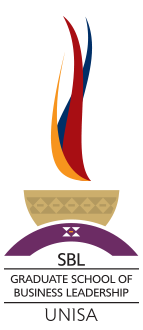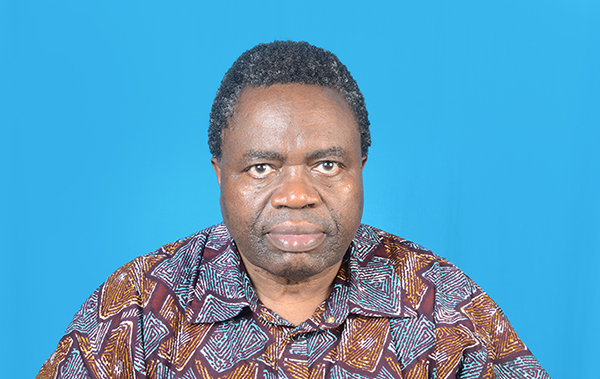
A seasoned professional with extensive expertise in project management and project procurement, Prof Pantaleo MD Rwelamila brings three decades of experience in consulting to his role as Professor Extraordinaire and Emeritus of Project Management and Procurement Systems at the Unisa Graduate School of Business Leadership (SBL).

Prof Pantaleo MD Rwelamila
His expertise lies in construction economics, policy development, project appraisal, construction project planning, procurement, contract formulation, management, project performance evaluation, risk management, strategic project management and strategic alliances.
As such Rwelamila, a National Research Foundation (NRF) B-rated researcher, has made a significant contribution to the African and international construction industry.
"My professional journey has taken me across borders, where I have undertaken high-level assignments in South Africa, Australia and the United Kingdom," says Rwelamila. These assignments have included pivotal roles such as contributing to the development of South African Construction Industry Policy, through the Department of Public Works, and participating in the re-evaluation of operations at Shelter Afrique in Nairobi, Kenya.
Rwelamila continues: "My commitment to professional development has seen me organise and lead more than 60 continuous professional development courses for construction and related industry practitioners across various countries, including South Africa, Botswana, Zambia, Tanzania, Uganda, Kenya and Australia. Notably, 10% of these courses have been dedicated to public-private partnership (PPP) fundamentals and best practices."
His academic journey has been similarly impactful. Rwelamila, who has studied at universities in Tanzania (ARI/ARDHI University), the United Kingdom (Brunel University) and jointly at the University of Liverpool and the University of Cape Town, has authored over 200 peer-reviewed journal articles and conference proceeding publications, research papers and study reports.
"Applying for an NRF rating was a significant step in my academic and research career," he says. As a highly rated researcher, he has opportunities to collaborate with other renowned scholars, both nationally and internationally. This has led to innovative and groundbreaking research projects relating to, among others, project procurement systems and PPPs.
The NRF rating system in South Africa is an important mechanism for evaluating and recognising the research productivity and quality of individual researchers and research institutions in the country. Rwelamila shares reasons for the importance of having an NRF rating:
Funding opportunities: NRF ratings are often used as a basis for awarding research grants and funding. Researchers with higher ratings are more likely to secure funding for their research projects, which allows them to conduct more extensive and impactful research.
Career progression: NRF ratings can significantly influence a researcher's career progression. A higher rating can lead to promotions, tenure, and better job opportunities within academia and research institutions.
Research excellence: An NRF rating is a recognition of a researcher's contributions to their field. It signifies that their work has been evaluated and deemed to be of high quality and significance. This recognition is valuable not only for career advancement but also for building a reputation as a leading expert in a particular area of research.
International collaboration: A good NRF rating can open doors to international collaborations and partnerships. Researchers with high ratings are often sought after by scholars and institutions from around the world for collaborative projects, which can lead to a broader impact and greater visibility for their work.
Institutional ranking: For universities and research institutions, the collective NRF ratings of their faculty and researchers can influence their overall institutional ranking and reputation. Higher-rated institutions are more likely to attract top talent, students and research collaborations.
National research priorities: NRF ratings may also be used to align research efforts with national priorities. Researchers working on projects that align with South Africa's strategic research goals may receive additional support and recognition.
Research output and impact: NRF ratings are based on an evaluation of a researcher's research output, including publications, patents, and other scholarly activities. This encourages researchers to focus on producing high-impact research that contributes to the advancement of knowledge and the development of the country.
Rwelamila says applying for an NRF rating in South Africa is a rigorous process, and achieving a high rating can significantly boost your research career. He offers the following advice for researchers who intend applying for an NRF rating.
Understand the criteria: Familiarise yourself with the specific criteria and requirements for NRF ratings in your discipline. These criteria can vary across different fields, so it's essential to know what is expected of researchers in your area.
Plan: Preparing a strong NRF rating application can take time. Start planning and gathering the necessary documentation well in advance of the application deadline.
Maintain a strong publication record: High-quality publications in reputable journals are a critical component of an NRF rating application. Focus on publishing your research in well-regarded journals in your field.
Showcase impact: Highlight the impact of your research. Provide evidence of how your work has influenced your field, society, or industry. This can include citations, media coverage, collaborations or applications of your research in the real world.
Collaborate: Collaborate with other researchers, both nationally and internationally. Collaborative research often leads to higher-impact work and can strengthen your application.
Seek peer recognition: Aim for invitations to review papers or speak at conferences. Peer recognition can demonstrate your standing in your field.
Engage in research projects: Actively participate in research projects and grant-funded activities. This can demonstrate your ability to secure research funding and contribute to larger research initiatives.
Provide clear and compelling evidence: When submitting your application, ensure that you provide clear and compelling evidence of your research achievements. Be concise but thorough in your documentation.
Build a strong CV: Continuously update your curriculum vitae (CV) to reflect your research accomplishments, awards and achievements. Your CV is a crucial part of your application.
Consider a mentor: If possible, seek advice and mentorship from researchers who have successfully obtained NRF ratings in the past. They can provide valuable insights and guidance.
Write a strong motivation: In your application, provide a well-written motivation that explains your research goals, the significance of your work and your future research plans. Clearly articulate your research trajectory.
Stay informed: Keep up to date with developments in your field and the latest trends in research. This knowledge will help you stay competitive and relevant.
Prepare for peer review: Understand that your application will be evaluated by experts in your field. Ensure that your application is organised, well-structured and presents your achievements convincingly.
Meet deadlines: Be mindful of application deadlines. Late submissions are typically not accepted.
Consider resubmission: If your initial application is not successful, consider seeking feedback from the NRF reviewers and improving your application for a future submission.
"Remember," concludes Rwelamila, "that obtaining an NRF rating can be a competitive process, and it may take multiple attempts to achieve the desired rating. Persistence, dedication to your research, and a track record of impactful work are essential elements of a successful application."
* Compiled by Mpho Moloele, PR and Communications, Department of Research, Innovation and Commercialisation
Publish date: 2024-02-26 00:00:00.0
Contact the Marketing and Communication office: Ms Thami Kaunda at kaundn@unisa.ac.za
011 652 0339
Telephone: +27 11 652 0248 / +27 11 652 0291
Email: sbl@unisa.ac.za
Physical Address:
Cnr Janadel and Alexandra Avenues
Midrand, 1686
Gauteng, South Africa
Download map & directions (PDF)